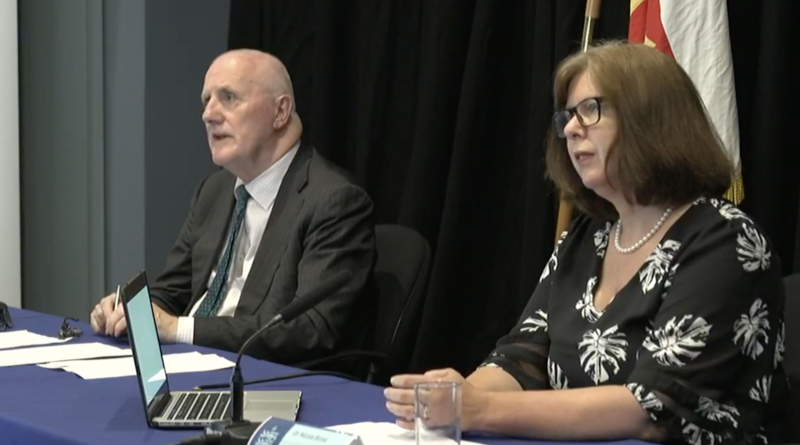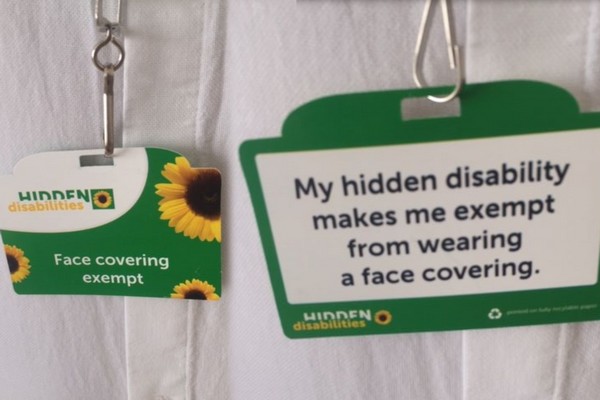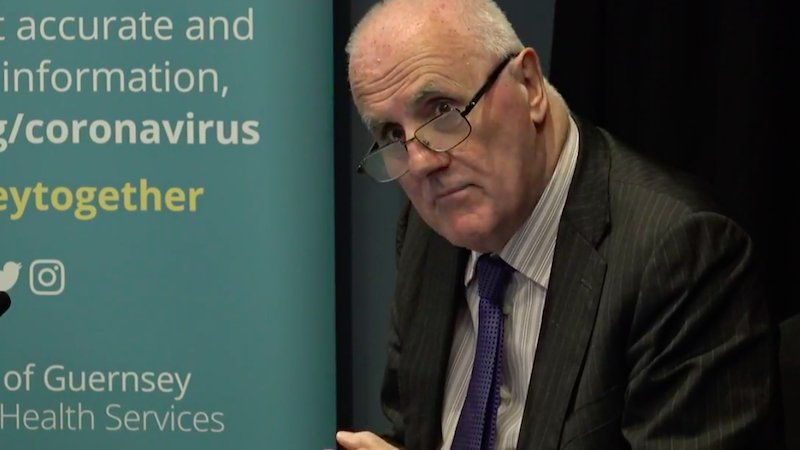


Masks are now strongly recommended in crowded areas and indoor venues where it is not possible to socially distance, under new CCA guidance that also directs people to proactively take at least two lateral flow tests per week.
There are currently no plans to re-introduce any testing or isolation requirements for travellers on arrival in the Bailiwick.
Recent days have seen escalating Covid case numbers (now 233) and an increase in hospital admissions, with one person reported to have died with Covid-19 yesterday.
Concerns have been raised that people are still going into their workplace while unwell, are not reporting their symptoms, and are not maintaining good hand hygiene.
The CCA has today issued two recommendations. The first is that everyone (of secondary school age or older) collect a pack of the lateral flow tests and use them at least twice per week.
People have also been asked to take a lateral flow test before attending any meetings in a crowded or poorly ventilated place, or somewhere where social distancing or the wearing of a mask “is not possible or practical”.
The second is that face coverings are now “strongly recommended” in places such as shops and public transport where physical distancing is not possible, places that have poor ventilation and in workplaces where people are in “very close proximity with colleagues, service users or customers.”
CCA Chairman Peter Ferbrache said people should "use their common sense" and, if in doubt, wear a mask.

Pictured: Dr Brink said that when someone with Covid-19 breathes, speaks, coughs or sneezes, they can release droplet or aerosol particles containing SARS-CoV-2. A person can be infected when these particles are inhaled, or come into contact with the eyes, nose or mouth. The transmission risk is highest where people are in close proximity and in poorly ventilated indoor spaces.
Health care settings will be allowed to instruct visitors to wear a face covering, which should be checked with providers before attending.
Businesses are allowed to ask staff or customers to wear face coverings because of the type of setting in which they operate “if they feel it is appropriate to do so and customers are urged to respect these requests.”
Director of Public Health Dr Nicola Brink said the measures are needed in order to “stop a manageable number of cases getting out of control”.
“We have managed the level of Covid-19 cases in recent months really well as a community, and that isn’t down to luck and it isn’t because Covid has gone away.
“But now I am concerned that we’re seeing the single most important measure we can all take – staying at home and reporting our symptoms when we’re unwell – not being followed by some.

Pictured: A ‘sunflower lanyard’ scheme was introduced earlier this year for people unable to wear a face covering and these can still be collected from various locations or downloaded HERE.
She continued: “I understand this is difficult and inconvenient, it can interrupt our plans and make it very hard to do our jobs. But it’s also critical to keeping the number of cases at a level that we can manage, protecting the most vulnerable in the community, as well as not putting our health service under more pressure than it can cope with.”
Deputy Peter Ferbrache, Chair of the Civil Contingencies Authority, said there is a continuing risk that a “very small number of people will still become seriously ill despite our high vaccination levels.”
“We talk about living with the virus. But living with the virus does not mean living how we did before the virus. It means taking sensible precautions, taking responsibility for ourselves and ensuring we don’t spread the virus to others.
“We are slipping, and that is not a criticism of anyone in our community. No one can be blamed for being completely fed up with the pandemic and the impact it’s had on our lives in big ways and small.”

Pictured: The island has recently introduced an on-island sequencing capability, which has identified the highly-transmissible Delta Variant in almost all cases.
Deputy Ferbrache indicated that Guernsey's borders - which were relaxed further yesterday, allowing people to travel freely to Guernsey from the Common Travel Area regardless of vaccination status - would stay open.
“Closing the borders was never a long-term solution to Covid-19. It was a temporary measure until we were able to vaccinate all those eligible and willing in our community, but we have done that.
“Keeping the borders closed for a community that is very highly vaccinated is the same as saying the borders will stay closed forever and that clearly isn’t an option.”
Comments
Comments on this story express the views of the commentator only, not Bailiwick Publishing. We are unable to guarantee the accuracy of any of those comments.